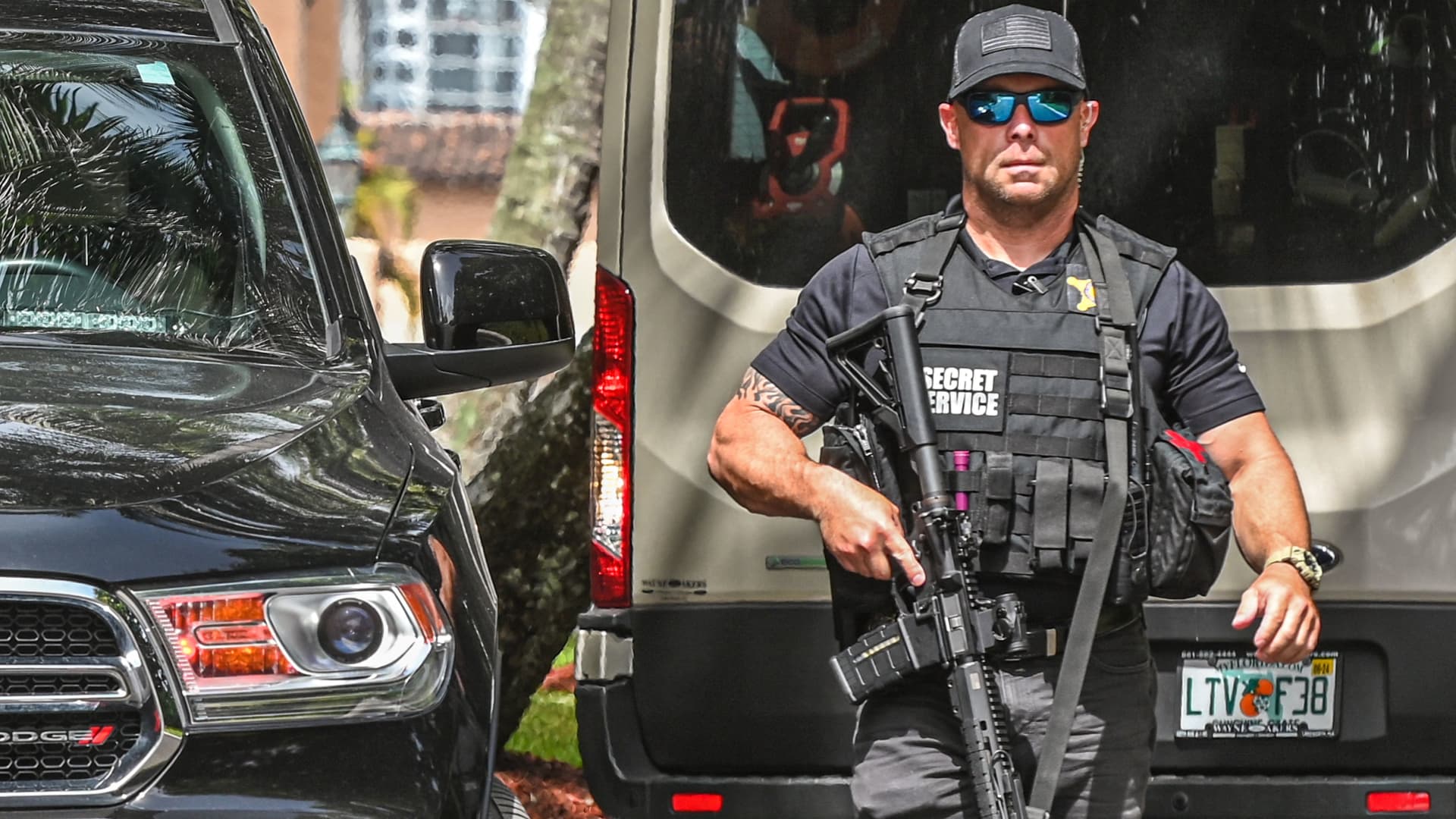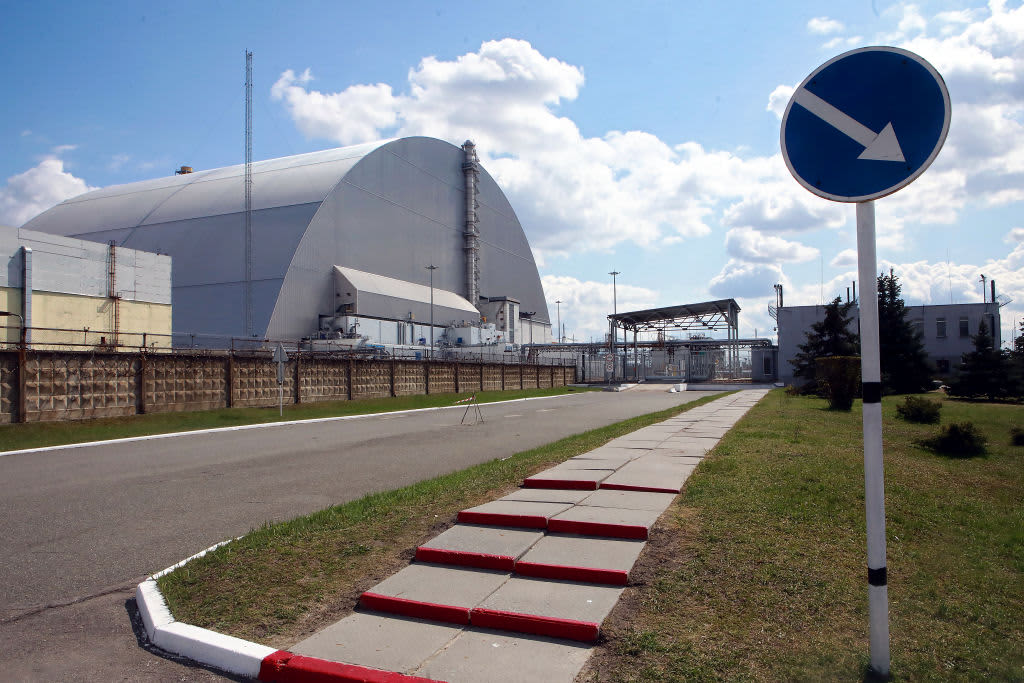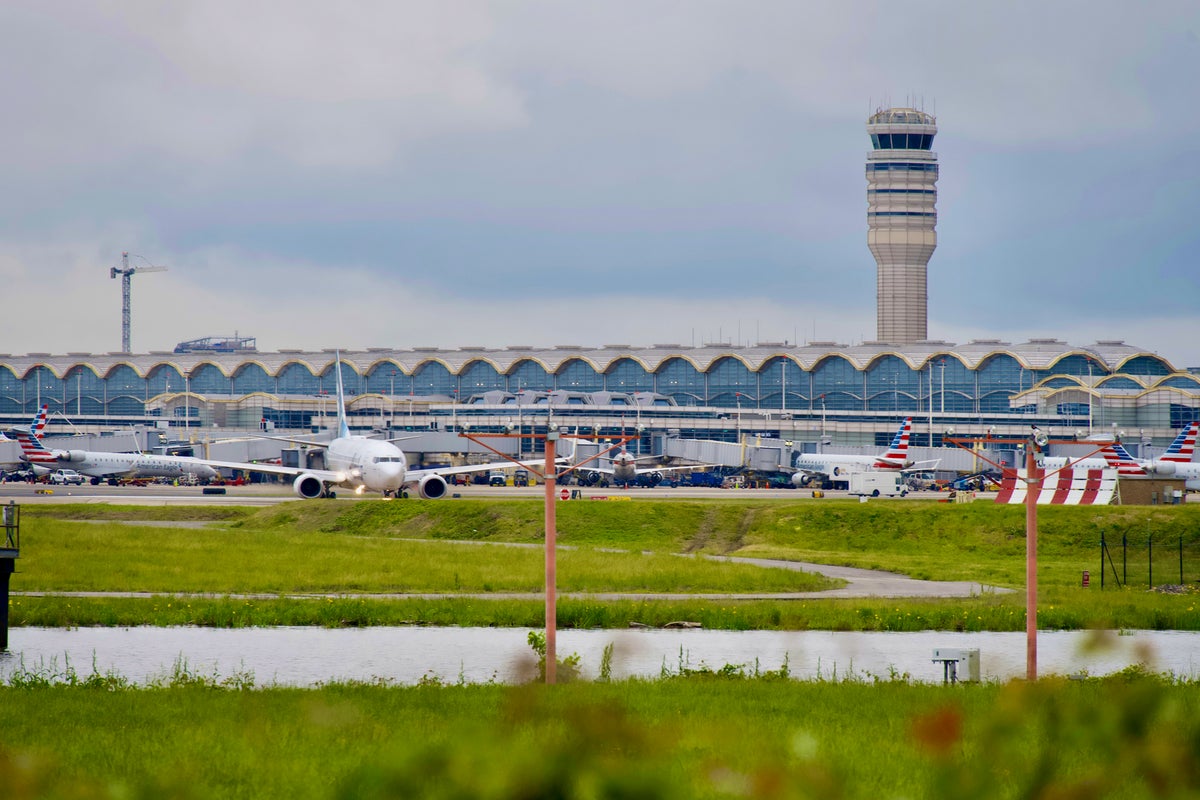FBI search warrant reveals agents seized top-secret documents in raid of Trump's home
The FBI seized multiple sets of records marked top secret from former President Donald Trump's resort home Mar-a-Lago, a search warrant unsealed Friday shows.

A member of the Secret Service is seen in front of the home of former President Donald Trump at Mar-A-Lago in Palm Beach, Florida on August 9, 2022.
Giorgio Viera | AFP | Getty Images
The FBI seized multiple sets of documents marked top secret from former President Donald Trump's Florida resort home, Mar-a-Lago, when agents raided it Monday, according to a search warrant unsealed Friday.
The warrant directed agents to seize "all physical documents and records constituting evidence, contraband, fruits of crime, or other items illegally possessed" in violation of three laws related to handling of government documents.
Read the redacted search warrant here
The warrant indicates that statutes relating to espionage and obstruction of justice are the foundation for the search. Convictions under these statutes can bring fines or prison sentences.
One of the statutes, which relates to removing or destroying government records, includes a punishment of being "disqualified from holding any office under the United States," according to the text of the law.
None of the three statutes — Title 18 of the United States Code, Sections 793, 1519 and 2071 — hinge on whether the documents in question were classified.
But the warrant left out many details about the materials seized — and the government's motivation for the shocking raid, believed to be the first search of a former president's home.
"This is really uncharted territory," Richard Serafini, a criminal defense attorney and former Department of Justice trial lawyer, said in an interview.
Eleven sets of classified documents were among the materials seized in the raid, according to a receipt for property seized that was attached to the warrant. One group of files was marked "Various classified/TS/SCI documents," which includes an abbreviation for top-secret/sensitive compartmented information.
The others were four sets of top-secret documents, three groups of secret documents, and three sets of confidential documents.
The agents took at least 20 boxes of items, along with binders of photos, one handwritten note and an "executive grant of clemency" for Roger Stone, a Republican political operative whom Trump had pardoned, according to the document.
Information about the president of France was also on the list of items removed from Mar-a-Lago.
Trump and his attorneys have argued that the president declassified the materials before the end of his one term in office. Trump, who has criticized the Justice Department since he first revealed the raid Monday evening, has argued that his team had been cooperating with authorities.
A spokeswoman for Trump did not immediately respond to CNBC's request for comment.
Reporting on the search warrant and related materials came a few hours before U.S. Magistrate Judge Bruce Reinhart agreed to unseal the warrant. The DOJ told Reinhart shortly beforehand that Trump did not oppose that disclosure.
The FBI was looking for nuclear documents in Trump's home, among other items, The Washington Post reported Thursday, citing people familiar with the investigation.
Reinhart agreed to make the search warrant public a day after the Justice Department filed a motion in court to release the document, in light of the "substantial public interest in this matter."
In announcing the Justice Department's move Thursday, Attorney General Merrick Garland also noted that he had personally approved the warrant, and condemned the wave of attacks on the FBI and DOJ that followed Trump's announcement about the raid.
Trump, in an apparent defense against the allegations against him, claimed on social media that former President Barack Obama "kept 33 million pages of documents, much of them classified" after leaving office.
The National Archives and Records Administration appeared to push back on his claims, explaining that those pages of records were unclassified and moved to a facility in Chicago "where they are maintained exclusively by NARA."
Obama "has no control over where and how NARA stores the Presidential records of his Administration," NARA said.
But Trump repeated the claim in a subsequent statement, which also asserted that the Mar-a-Lago records were "all declassified."
"They didn't need to 'seize' anything," read the statement sent by Trump's office. "They could have had it anytime they wanted without playing politics and breaking into Mar-a-Lago. It was in secured storage, with an additional lock put on as per their request."
The warrant for Mar-a-Lago directed agents to search Trump's so-called "45 office," along with all rooms that were available to the former president and his staff "and in which boxes or documents could be stored."
The search did not include any areas being rented or used by club members or other parties, according to the warrant.
The warrant specified that agents should seize any documents with classification markings, along with the boxes in which they are stored; any communications about the "retrieval, storage, or transmission of national defense information or classified material"; any government records created during Trump's time in office; and any evidence of "the knowing alteration, destruction, or concealment" of government records.
Read the redacted search warrant:

 Konoly
Konoly 






























